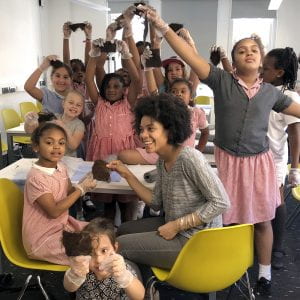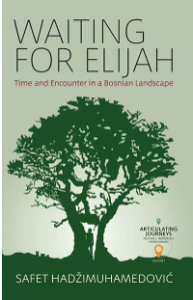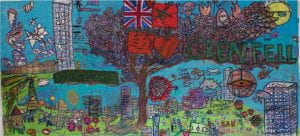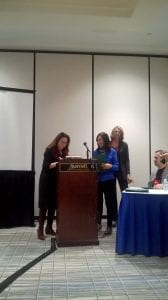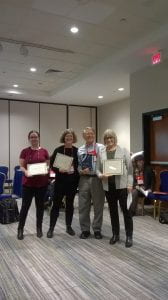A tribute to Steve Nugent, who passed away on 13 November, from his colleagues in the Department of Anthropology
How to remember Steve Nugent? Fiercely intelligent, defiant, loyal, caring, sceptical, humorous, persistently inspiring and forever disruptive! Steve was a man who left a mark on all who met him and anyone who sat in department meetings or on college boards with him will no doubt have their own unique memories of this remarkable man.

We remember him here for his dedicated commitment and contributions to anthropology, Latin American Studies and the intellectual life of Goldsmiths.
Steve joined the anthropology department at Goldsmiths in 1981 and twice took on the role of Head of Department. His contributions to anthropology were wide ranging, spanning political economy, peasant societies, the anthropology of Brazil, historic and visual anthropology. He has left behind him a formidable body of work on Amazonia: Big Mouth: the Amazon Speaks (1990) – a ground-breaking account of the socio-economic and environmental landscapes of contemporary Amazonia, Amazonian Caboclo Society: An Essay on Invisibility and Peasant Economy (1993) and Scoping the Amazon: Image, Icon, Ethnography (2007) – a work which focuses on problems of representation and Indigenism and Cultural Authenticity in Brazilian Amazonia (2009). This year he completed perhaps his most ambitious contribution to the political economy of the region yet with the publication of his book The Rise and Fall of the Amazon Rubber Industry: An Historical Anthropology (2018).
Steve was far more than just an Amazonianist. His interests were broad extending to questions of cognition (for example The “Peripheral Situation” 1988), the analysis of political and economic elites (see co-edited volume with Cris Shore, Elite Cultures: Anthropological Perspectives, 2003), anthropology’s complicated relationship with cultural studies (with Cris Shore Anthropology and Cultural Studies,1998), structural Marxism and the potential of visual methods to advance anthropological theory and practice.
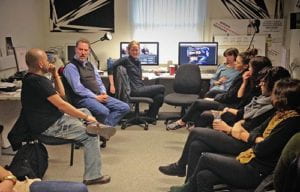
Steve was also Editor-in-chief with John Gledhill of the influential journal, Critique of Anthropology and he taught for many years at the Institute of Latin American Studies. At Goldsmiths he set up the MA in Visual Anthropology and more recently the BA in Anthropology and Visual Practice. He also founded and for many years directed the Centre for Visual Anthropology. His interest in the visual was both theoretical and practical and in the last decade of his time at Goldsmiths he made three films: Where is the Rabbi? (2001), a film about Sephardic communities living in Amazonia, Waila (2009), focused on a Tohono O’odham musician from Tucson Arizona, and Sounds Like a Vintage Guitar (2012), an exploration of the business and craft of making and faking historical electric guitars. Arguably, his anthropological sensibility informed his artistic collaborations and vice versa. How many anthropology departments can boast that one of their members collaborated with Ian Dury and wrote the iconic song ‘Billericay Dickie’ (in the album New Boots and Panties 1977)?! His colleagues always knew when Steve was in his office from the music streaming down the corridor.
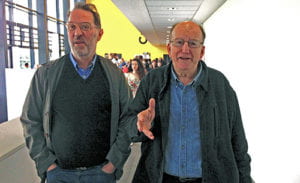 Steve taught and supervised several generations of anthropologists at Goldsmiths as well as serving on numerous college committees. His students remember him as strict but generous and supportive. Many of them have gone on to become academics and maintained long term relationships with him. His colleagues remember him as a tireless worker on behalf of the department and of the discipline, whose sharp and acerbic wit was guaranteed to enliven every occasion. Steve’s contributions to anthropology and to Goldsmiths were remarkable and the world feels less interesting without him.
Steve taught and supervised several generations of anthropologists at Goldsmiths as well as serving on numerous college committees. His students remember him as strict but generous and supportive. Many of them have gone on to become academics and maintained long term relationships with him. His colleagues remember him as a tireless worker on behalf of the department and of the discipline, whose sharp and acerbic wit was guaranteed to enliven every occasion. Steve’s contributions to anthropology and to Goldsmiths were remarkable and the world feels less interesting without him.
A private humanist ceremony was held for Steve Nugent’s immediate family on 16 November. The Department of Anthropology will host an event in his memory in 2019.
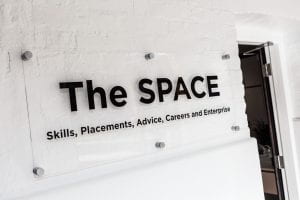

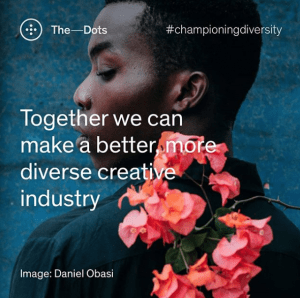
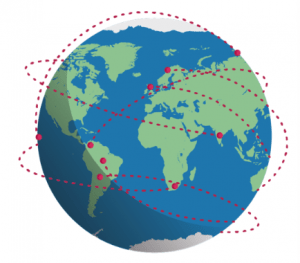


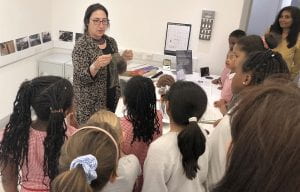
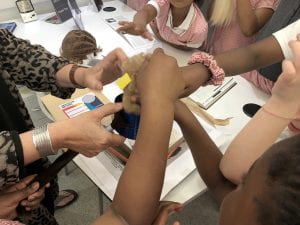 Gallery, curated by Emma Tarlo and Janis Jefferies. The children enjoyed feeling different types of hair (yak, dog, cat, camel and human!) and had fun trying on hair nets and testing the amazing strength of human hair rope. They saw images of hair work in India and China and learned about how hair is recycled in those countries before going on to join Alix Bizet for a hands on workshop where they learned to make felt from human hair. It was a lively, loud and enjoyable collaboration for all involved!
Gallery, curated by Emma Tarlo and Janis Jefferies. The children enjoyed feeling different types of hair (yak, dog, cat, camel and human!) and had fun trying on hair nets and testing the amazing strength of human hair rope. They saw images of hair work in India and China and learned about how hair is recycled in those countries before going on to join Alix Bizet for a hands on workshop where they learned to make felt from human hair. It was a lively, loud and enjoyable collaboration for all involved!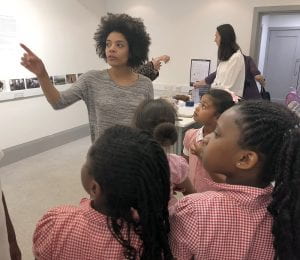 Emma Tarlo, has also curated an exhbition, Hair! Human Stories which will avilable to see at The Library Space in Battersea from 7 June 201. More informaiton about this can be found on the
Emma Tarlo, has also curated an exhbition, Hair! Human Stories which will avilable to see at The Library Space in Battersea from 7 June 201. More informaiton about this can be found on the 